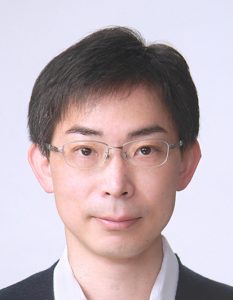 “Computational Science” is the third kind of approach of scientific discovery besides traditional “Theory” and “Observation”, driven by computational simulation on physical phenomena. To achieve it, we need large scale supercomputing facilities to handle ultra high-speed computation and large amount of data handling. The Center for Computational Sciences (CCS) is established to proceed this research methodology by the collaboration between application scientists and computer scientists. In 1992, the Center was organized as the former name of the Center for Computational Physics, then after 12 years of activity, it was reorganized as current form.
“Computational Science” is the third kind of approach of scientific discovery besides traditional “Theory” and “Observation”, driven by computational simulation on physical phenomena. To achieve it, we need large scale supercomputing facilities to handle ultra high-speed computation and large amount of data handling. The Center for Computational Sciences (CCS) is established to proceed this research methodology by the collaboration between application scientists and computer scientists. In 1992, the Center was organized as the former name of the Center for Computational Physics, then after 12 years of activity, it was reorganized as current form.
The CCS has been developing our original high performance supercomputers, not just procuring commercial systems but designing and installing the system based on the concept of “codesigning” where the application scientists and computer scientists collaborate to realize an ideal system to combine their needs and seeds. Based on codesigning, the application programs are developed and tuned to exploit the maximum performance of the supercomputer system. As a result of our activity, our originally designed supercomputer, CP-PACS was ranked as the top of the world in TOP500 List released in November 1996. Moreover, the researchers of CCS coauthored the ACM Gordon Bell Prize in 2011 and 2012, which is the most honorable award for high performance computing and application run in the world. We have been continuing our supercomputer development over ten generations of PAX/PACS series systems based on codesigning.
In recent years, advances in artificial intelligence (AI) technology have led to the emergence of new research methods (AI for Science) that combine traditional numerical simulation and machine learning, which will be a major challenge in the post-‘Fugaku’ supercomputer. Furthermore, ‘classical-quantum hybrid supercomputer’, which combines conventional HPC and quantum computers, is also important topic in the HPC world. These technological innovations are expected to make it possible to solve problems and make new scientific discoveries that were considered difficult previously. Based on these trends, the our Centre and faculty members will continue to provide state-of-the-art supercomputer resources and promote the development of computational science, simulation, AI and quantum computation through the co-design of domestic and international researchers and engineers, thereby laying the foundations for future scientific and technological innovations and contributing to Japan’s computational science. We will continue our efforts to contribute to computational science in Japan.
April 2025
SHIGETA Yasuteru
Director of the Center for Computational Sciences
